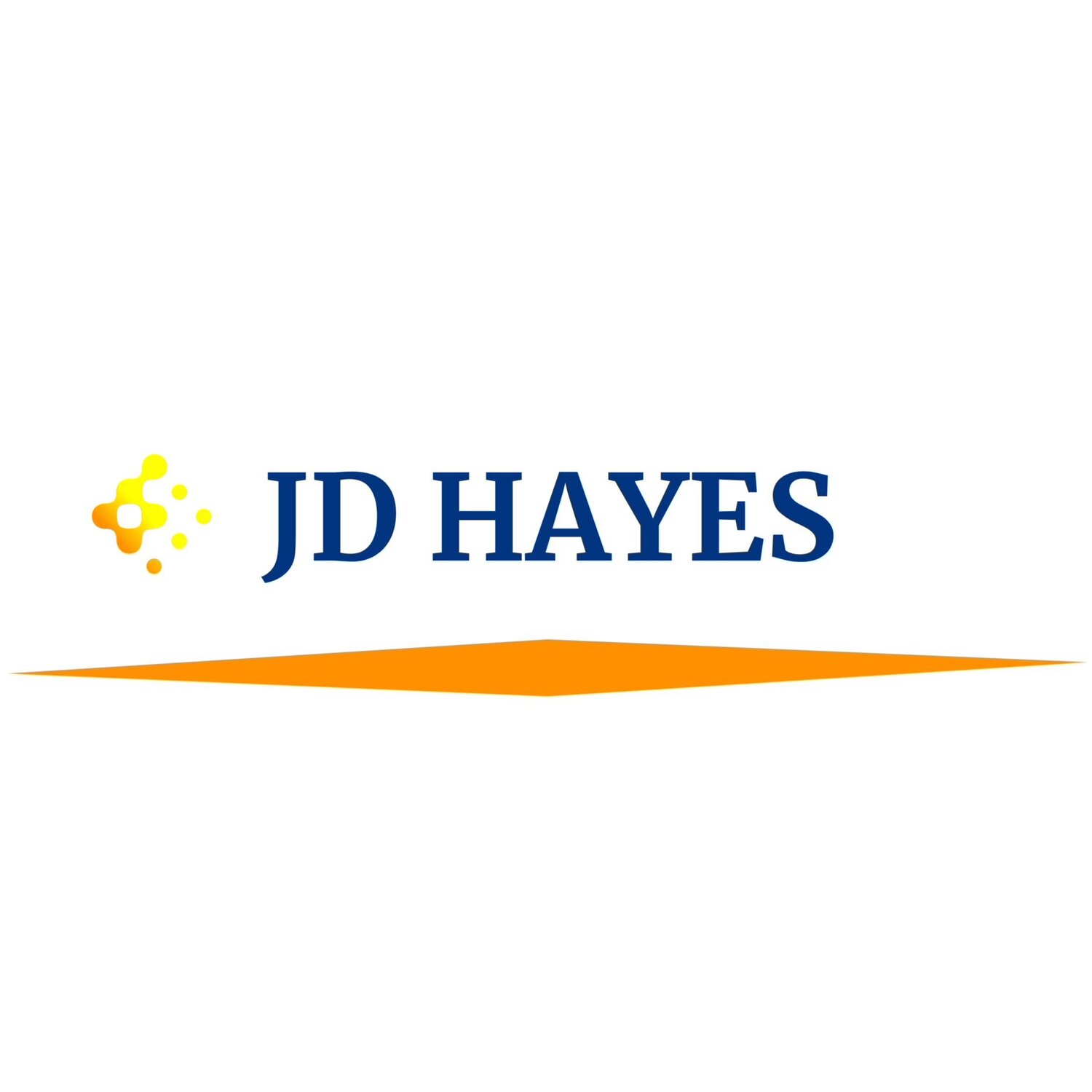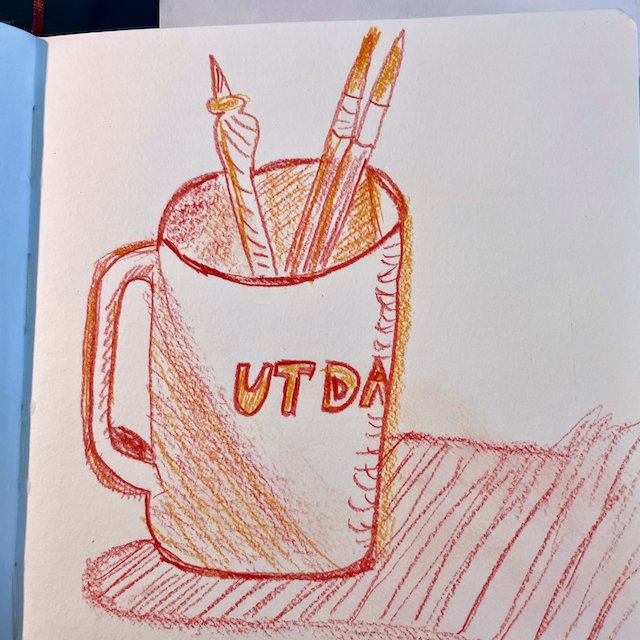Practice Needs a Purpose
Practicing drawing needs a purpose. Likewise, practicing football, baseball, and the violin requires a purpose. So before you start any practice, you need to be clear on your purpose.
Purpose lets you experience total satisfaction. When you know what you are practicing for, you have clarity when you are done that you either achieved the objective or understand what you need to do next time to complete your purpose. Either way, you get feedback.
Today's drawing focused on using colors on the same side of the color wheel to create a sketch.
Not using the "actual" colors of the object but just picking two colors to draw. I achieved that objective. This drill will allow me to think beyond the object's color and more toward a fun, exciting color pallet.
What is your purpose for doing something today?
Keeping your Anticipation from tipping over into Disappointment
We all need something to look forward to.
I was going down to Disney’s Food and Wine Festival for the first time in over two years. Walt Disney World is an escape for me, and this trip was really needed.
My anticipation for the trip was enormous and building.
I hadn’t seen my brother and his family since being down in Orlando when my mother passed away. It has been over two years. I was also looking forward to relaxing and enjoying time with my wife. I escape my daily grind with Disney.
Planning, planning, planning drives up my excitement. It’s funny how the Walt Disney World arch is the image I see as a positive gateway.
Was my growing anticipation setting me up for disappointment? What about the build-up is too much, and then is a letdown once I get there? How can I live in the moment and just enjoy the experience? All these thoughts are running through my mind.
A bit of background on anticipation
Anticipation for me is the positive side of looking forward to something great. I am not talking about negative anticipation or getting into anticipatory anxiety. Where you are spiraling to what COULD go or be wrong.
Do I always exaggerate the positive or negative? Does your mind automatically exaggerate the positive? Although I can see situations where it also magnifies the negative. This is his back to self-talk? Both positive and negative. I hope the spontaneity does not go away from Disney.
Anticipation is a good thing.
Always have one thing to look forward to that you can use to get through challenging times / or a demanding experience. Anticipation can be a stepping stone to hope.
Steven Handel wrote an excellent post on anticipation, “The Power of Anticipation: Why We All Need Something to Look Forward To,” and cites a study that suggested gambles can curb their impulses and choose long-term gratification over short-term gratification when asked to think about a future experience.
Here are some questions I have, and frankly, I don’t know the answers:
Does your general dispositive impact what type of anticipation you have? Do you tend towards anticipation or dread?
Is there a situation where you move towards positive because the mind is looking for something positive? It is a case where are your preference for positivity comes through?
Do you think it gets back to the need for certainty? This can be especially important when you are looking forward to something you have previously done.
How can I ensure that your anticipation is positive and that it doesn’t lead to disappointment?
Here are seven ideas that you do to improve the chances that your anticipation turns into a good experience, not into dread:
Get clarity on what you are anticipating – what exactly am I looking forward to, and why? Are you looking for a chance to unwind, experience a new thrill? Be clear. What is your anticipation bug?
Set reasonable expectations of what your Anticipation bug is and how the event/decision can satisfy it. Right after clarity, define how this event, experience is going to fulfill that anticipation bug. This should help highlight any significant gaps – the event can or can’t reasonably satisfy your anticipation bug – a first red flag of potential disappointment.
What specifically about the future action/event is going to satisfy your anticipation bug? This helps ensure that what you are doing is going to tie into your anticipation. If it doesn’t connect, you really have no chance.
When you are during doing what you were anticipating or experiencing what you were expecting, think back to the anticipation bug; are you explicitly doing what you were anticipating?
At the moment – think back to the anticipation bug – is it doing that?
Then – are you trying to satisfy that bug? Get clarity at the moment – is the event quenching your anticipation bug? Is it providing other unanticipated benefits, joy?
And finally, are you going too far or trying too hard to enjoy it to gain pleasure?
In my mind, it all comes down to being aware. Are you aware of what you are anticipating and then intention or mindful of what you are experiencing during it?
How do you handle anticipation? Let us know in the comments below.
Celebrate Small to Go Big
I celebrate small to go big. Here is how I do it.
Tiny habits. I have been going through BJ Fogg’s Tiny Habits book. I’ll have a review published shortly. Using Fogg’s techniques in the book, I have made significant, consistent improvements in critical areas.
“I change best by feeling good, not by feeling bad”
That is BJ Fogg’s maxim on change, and it is working for me. I’m not relying on willpower or “grit” daily to complete my habit items. Instead, I have the bar set low and celebrate right away.
To develop actions into habits for critical areas, I set a small, easily achievable daily target. Don’t laugh, but I mean small; Reading – 1 page.
Content Creation 5 min. Yes, I set the success bar that low.
I read one page and then immediately celebrate. What happens?
I get a dose of dopamine; I get another dose when I check it off in Streaks (the Habit tracking app I use). Same thing with content creation. Using the timing app MultiTimer (here is my review) to count down for 5 min. When the timer goes off, I give a little clap and celebrate. What tends to happen is I just sit back down and continue writing. Long past 5 min.
What makes this successful is that after I celebrate, psychologically, the pressure is off on keeping my streaks alive and achieving my daily goals. And what is interesting is what happens next. I read continuously throughout the day.
A physical book, my phone’s Kindle app when I have a second, even before tennis starts on my Kindle. I end up reading probably 30 minutes a day. All stress-free and in my minds’ eye, “extra reading.” I feel great; I don’t have the stress of coming to the end of the day and needing to read 10 pages or something. I have cleared all I need to do in the morning and feel great. Really works for me.
Same works for exercise.
I started my strength habit by doing 1 exercise. Yes, I go down and do a curl or even a few wrist exercises and check it off. What has that turned into? Anywhere from 25 – 60 min of strength 4 days a week. But I am sure to check off the Streaks app.
So, I would look to set yourself up for success low, build that habit, feel good about what you are doing and go from there.
What techniques do you use for setting habits? Share with all of us in the comments below.




